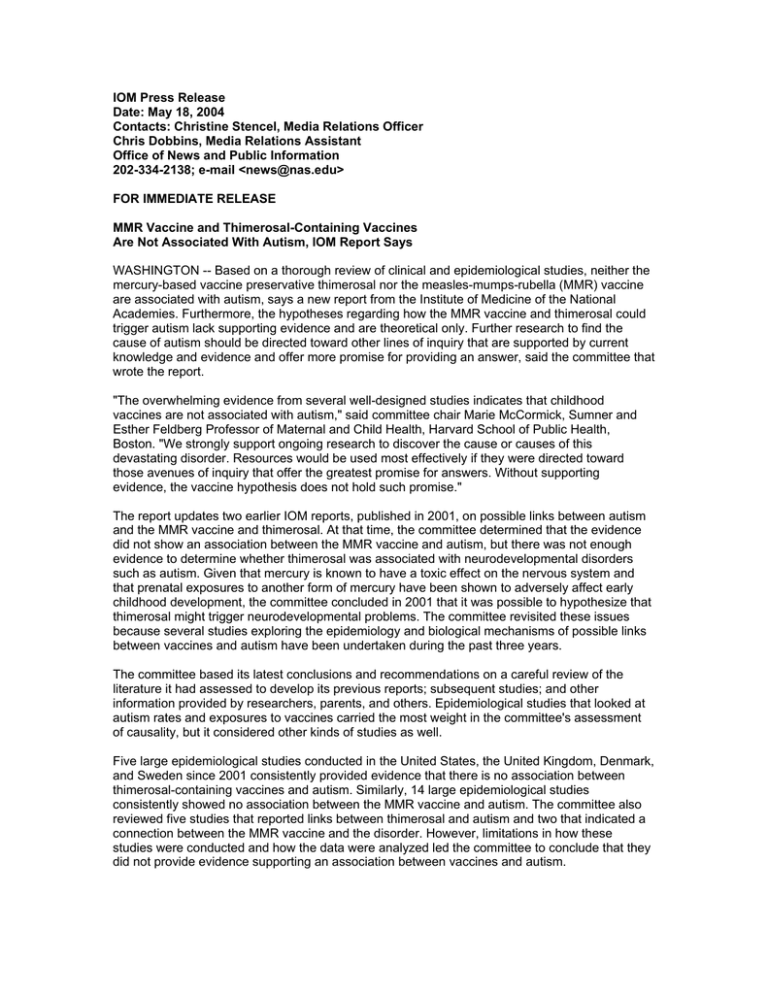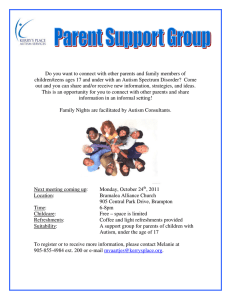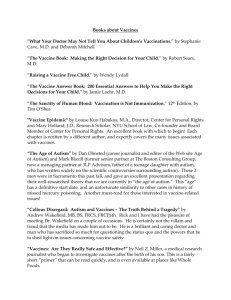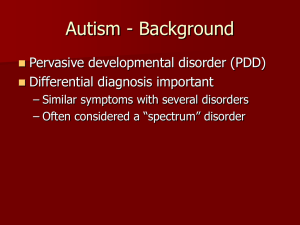
IOM Press Release
Date: May 18, 2004
Contacts: Christine Stencel, Media Relations Officer
Chris Dobbins, Media Relations Assistant
Office of News and Public Information
202-334-2138; e-mail <news@nas.edu>
FOR IMMEDIATE RELEASE
MMR Vaccine and Thimerosal-Containing Vaccines
Are Not Associated With Autism, IOM Report Says
WASHINGTON -- Based on a thorough review of clinical and epidemiological studies, neither the
mercury-based vaccine preservative thimerosal nor the measles-mumps-rubella (MMR) vaccine
are associated with autism, says a new report from the Institute of Medicine of the National
Academies. Furthermore, the hypotheses regarding how the MMR vaccine and thimerosal could
trigger autism lack supporting evidence and are theoretical only. Further research to find the
cause of autism should be directed toward other lines of inquiry that are supported by current
knowledge and evidence and offer more promise for providing an answer, said the committee that
wrote the report.
"The overwhelming evidence from several well-designed studies indicates that childhood
vaccines are not associated with autism," said committee chair Marie McCormick, Sumner and
Esther Feldberg Professor of Maternal and Child Health, Harvard School of Public Health,
Boston. "We strongly support ongoing research to discover the cause or causes of this
devastating disorder. Resources would be used most effectively if they were directed toward
those avenues of inquiry that offer the greatest promise for answers. Without supporting
evidence, the vaccine hypothesis does not hold such promise."
The report updates two earlier IOM reports, published in 2001, on possible links between autism
and the MMR vaccine and thimerosal. At that time, the committee determined that the evidence
did not show an association between the MMR vaccine and autism, but there was not enough
evidence to determine whether thimerosal was associated with neurodevelopmental disorders
such as autism. Given that mercury is known to have a toxic effect on the nervous system and
that prenatal exposures to another form of mercury have been shown to adversely affect early
childhood development, the committee concluded in 2001 that it was possible to hypothesize that
thimerosal might trigger neurodevelopmental problems. The committee revisited these issues
because several studies exploring the epidemiology and biological mechanisms of possible links
between vaccines and autism have been undertaken during the past three years.
The committee based its latest conclusions and recommendations on a careful review of the
literature it had assessed to develop its previous reports; subsequent studies; and other
information provided by researchers, parents, and others. Epidemiological studies that looked at
autism rates and exposures to vaccines carried the most weight in the committee's assessment
of causality, but it considered other kinds of studies as well.
Five large epidemiological studies conducted in the United States, the United Kingdom, Denmark,
and Sweden since 2001 consistently provided evidence that there is no association between
thimerosal-containing vaccines and autism. Similarly, 14 large epidemiological studies
consistently showed no association between the MMR vaccine and autism. The committee also
reviewed five studies that reported links between thimerosal and autism and two that indicated a
connection between the MMR vaccine and the disorder. However, limitations in how these
studies were conducted and how the data were analyzed led the committee to conclude that they
did not provide evidence supporting an association between vaccines and autism.
The committee also reviewed evidence related to possible biological mechanisms by which
immunizations might trigger autism. For example, it has been hypothesized that the measles virus
in the MMR vaccine might lodge in the intestines and trigger the release of toxins that lead to
autism. Another hypothesis suggests that the MMR vaccine might stimulate the release of
immune factors that damage the central nervous system, resulting in autism. It also has been
suggested that thimerosal may interfere with biochemical systems in the brain, leading to the
disorder.
However, no evidence has yet been found that the immune system or its activation play a direct
role in causing autism, the report notes. Autism also has never been documented as a
consequence of exposure to high doses of mercury. While the committee agreed that the studies
exploring these hypotheses raise interesting questions, they do not address the specifics of how
autism could result. Therefore, evidence for any biological mechanism linking vaccines with
autism can only be considered theoretical.
Autism is not a single condition, but rather a complex set of severe developmental disorders -also referred to as autistic spectrum disorders -- characterized by sustained impairments in social
interaction and communication abilities, as well as restricted or repetitive patterns of behaviors
and interests. It is unclear how many cases of autism there are, but two reviews of published
studies put the prevalence at one case for every 1,000 children. While some information suggests
that autism rates may be rising, it is not clear whether the observed increase is real or due to
factors such as heightened awareness of the disorder or the use of a broader diagnostic
definition.
Thimerosal is an organic mercury compound that is still used as a preservative in some adult
vaccines. It began to be removed from vaccines for children in 1999, and as of mid-2000,
vaccines that are recommended for universal use in infants and young children are available in
forms that have no or only trace amounts of thimerosal.
This study is the eighth and final in a series on vaccine safety sponsored by the Centers for
Disease Control and Prevention and the National Institute of Allergy and Infectious Diseases. The
Institute of Medicine is a private, nonprofit institution that provides health policy advice under a
congressional charter granted to the National Academy of Sciences. A committee roster follows.
Pre-publication copies of Immunization Safety Review: Vaccines and Autism are available from
the National Academies Press; tel. 202-334-3313 or 1-800-624-6242 or on the Internet at
http://www.nap.edu. Reporters may obtain a copy from the Office of News and Public Information
(contacts listed above).
[ This news release and report are available at http://national-academies.org ]
INSTITUTE OF MEDICINE
Board on Health Promotion and Disease Prevention
Immunization Safety Review Committee
Marie C. McCormick, M.D., Sc.D. (chair)
Sumner and Esther Feldberg Professor of Maternal and Child Health
Department of Society, Human Development and Health
Harvard School of Public Health
Boston
Ronald Bayer, Ph.D.
Professor
Department of Sociomedical Sciences
Joseph L. Mailman School of Public Health
Columbia University
New York City
Alfred Berg, M.D., M.P.H.
Professor and Chair
Department of Family Medicine
University of Washington School of Medicine
Seattle
Rosemary Casey, M.D.
Associate Professor of Pediatrics
Jefferson Medical College, and
Director
Lankenau Faculty Pediatrics
Wynnewood, Pa.
Betsy Foxman, Ph.D.
Professor
Department of Epidemiology
School of Public Health
University of Michigan
Ann Arbor
Constantine Gatsonis, Ph.D.
Professor of Medical Science and Applied Mathematics, and
Director, Center for Statistical Sciences
Brown University
Providence, R.I.
Steven Goodman, M.D., M.H.S., Ph.D.
Associate Professor
Department of Oncology
Division of Biostatistics
School of Medicine
Johns Hopkins University
Baltimore
Ellen Horak, M.S.N.
Education and Nurse Consultant
Public Management Center
University of Kansas
Topeka
Michael Kaback, M.D.
Professor of Pediatrics and Reproductive Medicine
University of California
San Diego
Gerald Medoff, M.D.
Professor
Department of Internal Medicine
Washington University School of Medicine
St. Louis
Rebecca Parkin, Ph.D.
Associate Professor of Environmental and Occupational Health, Epidemiology and Biostatistics,
and
Associate Dean for Research and Public Health Practice
School of Public Health and Health Services
George Washington University
Washington, D.C.
Bennett A. Shaywitz, M.D.
Professor of Pediatrics and Neurology
Yale University School of Medicine, and
Co-Director
Yale Center for the Study of Learning and Attention
New Haven, Conn.
Christopher Wilson, M.D.
Professor and Chair
Department of Immunology
University of Washington
Seattle
INSTITUTE STAFF
Kathleen Stratton, Ph.D.
Study Director
Subscribe to e-newsletters| Feedback | Back to Top
Copyright © 2004 National Academy of Sciences. All rights reserved. 500 Fifth St. N.W.,
Washington, D.C. 20001.
Terms of Use and Privacy Statement






